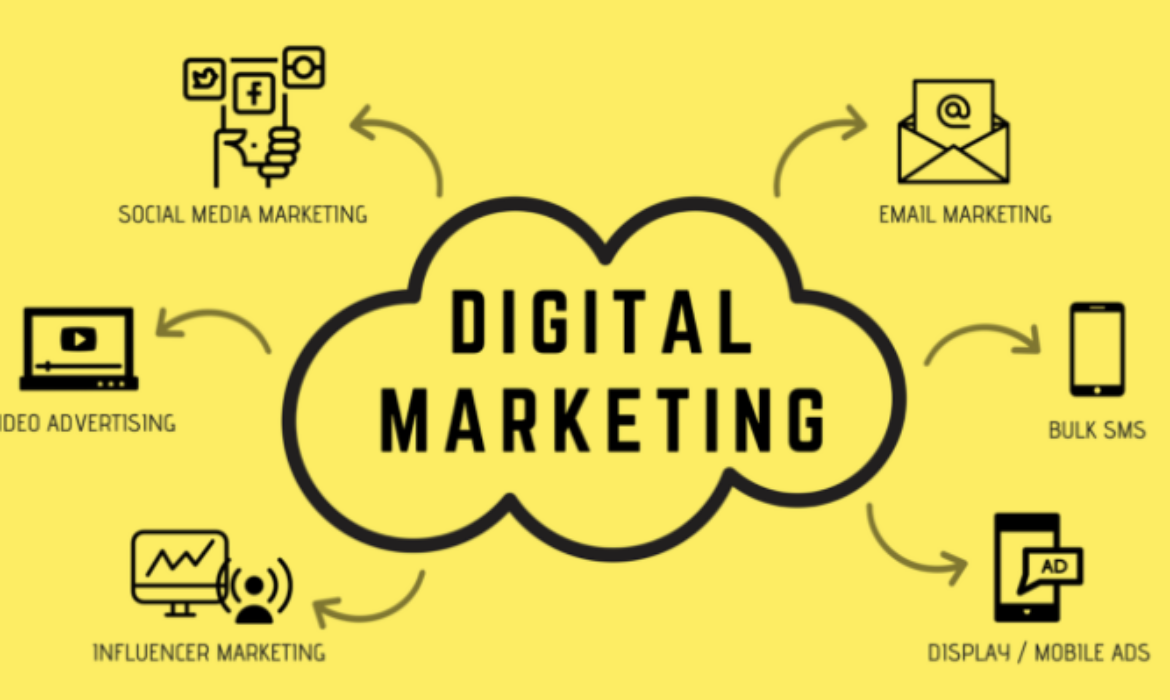The digital landscape has become a crucial platform for businesses to flourish, innovate, and establish worldwide connections with consumers in the dynamic field of commerce. A new age of potential and prosperity has been made possible by the transformation of established business paradigms brought about by the arrival of digital technologies. Although digital marketing is still an important part of this shift, digital business involves much more than just marketing tactics. This article delves into the complex world of digital business, examining its importance, difficulties, and tactics required to thrive in the digital era.
Digital business includes a wide range of activities, such as automation, data analytics, online sales,, and e-commerce. Fundamentally, digital business uses technology to improve productivity, optimize workflows, and provide clients with unmatched value. Organizations of all sizes, from start-ups to global conglomerates, are utilizing digitalization to maintain their competitiveness and satisfy changing consumer needs.
The capacity of a digital company to transcend geographic boundaries and connect with clients at any time or place is one of its distinguishing features. The way we purchase has been completely transformed by e-commerce platforms, which provide convenience, customization, and choice at the touch of a button. Today’s consumers want smooth experiences across many channels, whether they are making purchases, reserving services, or accessing digital information. As a result, organizations must embrace a digital-first strategy.
The path towards digital transformation is with difficulties, though. Businesses adopting digital technology must manage challenging concerns like data privacy, cybersecurity, and digital inclusion. Protecting sensitive data and fostering consumer trust are critical issues for businesses working in the digital sphere due to the rise in online transactions and the growing dependence on data-driven insights.
Furthermore, companies trying to stay ahead of the curve face both possibilities and challenges as a result of the quick speed at which technology is developing. Emerging technologies, like as blockchain, the Internet of Things (IoT), artificial intelligence, and machine learning, have the potential to unleash unprecedented levels of productivity, customization, and customer interaction. But keeping up with these developments calls for ongoing education, flexibility, and an openness to change. It all because of digital marketing
Businesses need to take a comprehensive approach that unifies marketing with other essential areas like sales, operations, and customer service if they want to succeed in the digital world. Businesses may better understand the interests, behaviours, and pain points of their audience by utilizing data analytics and customer insights. This helps them create individualized experiences that connect with customers on a deeper level.
In addition, companies need to give priority to flexibility and agility due to changing consumer demands and market conditions. In today’s fast-paced digital market, being able to quickly pivot, experiment with new technologies, and iterate on plans based on real-time feedback is important for staying competitive.
Enterprises need to allocate resources toward constructing a robust internal digital infrastructure, in addition to concentrating on exterior aspects like client acquisition and retention. This entails building resilient IT infrastructure, encouraging a collaborative and innovative culture, and allocating resources for staff training and development to guarantee that teams have the know-how required to prosper in digital marketing.
In the end, digital business success comes down to the capacity to add value for clients while welcoming innovation and changing with the times. Businesses may create remarkable experiences that foster enduring loyalty and long-term success, increase operational efficiency, and open up new growth prospects by utilizing the power of digital technologies.
In summary, digital marketing is an essential part of the larger ecosystem of digital business, but it is only one part of a holistic plan meant to fully realize the potential of digitalization. Businesses may set themselves up for success in the digital age and prosper in a constantly shifting environment of opportunities and challenges by embracing technology, placing a high value on customer-centricity, and encouraging an innovative culture.

